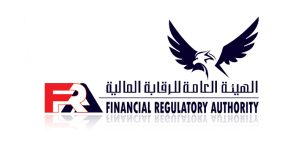On Sunday, May 15, 2022, the Egyptian prime minister held an international press conference announcing a sweeping economic plan to deal with the current global economic crisis. The main focus of the plan is overhauling the business environment through licensing simplification, investment and tax incentives, an increase in private sector partnership, energizing the Egyptian stock exchange, as well as decreasing public debt and budget deficit.
The key takeaways from the announcement are:
A Considerably More Active Private Sector
The prime minister emphasized the importance of the private sector in dealing with the current economic crisis. The government eyes an increase in private sector participation in investments amounting to 65% within the next three years.
Such increase will be supported by the following measures:
-
- A unit centralizing direct communication with investors to be established within the ministerial council.
- Revitalizing the Egyptian stock exchange by increasing the number of listed companies as well as the number of foreign and national investors and traders.
- A national strategy for intellectual property will be completed this year with a possibility of establishing of a national intellectual property authority.
- A special focus on increasing the effectiveness of the Egyptian Competition Authority in addition to separating the regulatory and supervisory authorities from the execution ministries, separating the process of oversight and supervision from execution.
Liquidation of State Assets
A State Ownership Policy Document has been announced. It will determine the assets and projects that the government is planning to fully withdraw from as they will be offered to the private sector. The plan is to withdraw from assets valued at USD 40 billion in the coming four years. Assets valued at USD 9 billion have already been identified for 2022.
The economic group is currently working on determining a detailed time plan to liquidate the assets. These assets span several sectors including clean and renewable energy projects, real estate assets, water desalination projects, telecom projects, education and banking industries.
Licensing Simplification and Expediency
A core focus of the sweeping measures is the simplification and facilitation of various measures and procedures pertaining to obtaining approvals and licenses. The government is committing to a maximum time limit of 20 days for the issuance of a license. In addition, a centralized authority will be able to deal with all investment needs and inquiries.
In connection to the above, automation of licensing and registration procedures have been initiated to streamline the process. Further, an automation of the investment map structure would allow the investor to reserve lands and complete all procedures remotely.
The announcement specified facilitating and simplifying procedures for startups and entrepreneurs. Said activities will be able to open or close companies through an online notification.
In addition, the plan encourages the establishment of sole person companies as well as announcing the ability to incorporate digital or virtual companies without the need for a physical headquarter.
More importantly, the prime minister reiterated the creation of a Golden License for specific projects and investments. The first three sectors that will welcome the said license are green hydrogen projects, electric vehicles manufacturing and infrastructure projects in particular desalination projects and renewable energy.
Incentives and Tax Exemptions
A wave of incentives has been announced, including incentives of investment law, green incentives, incentives in the health sector as well as a complete automation of the different procedures regarding tax filing.
To support localization of Egyptian manufacturing, 23% of the essential imports have been determined where if a factory within these sectors has been established it will benefit from various incentives including tax exemptions. These sectors include engineering manufacturing, medical and drug manufacturing, textiles, food and agriculture, metal industries and construction material.
The government is currently working on a bill regarding the exemption from taxes for a certain period of time of certain industrial establishments that will be established in the fourth-generation cities.



